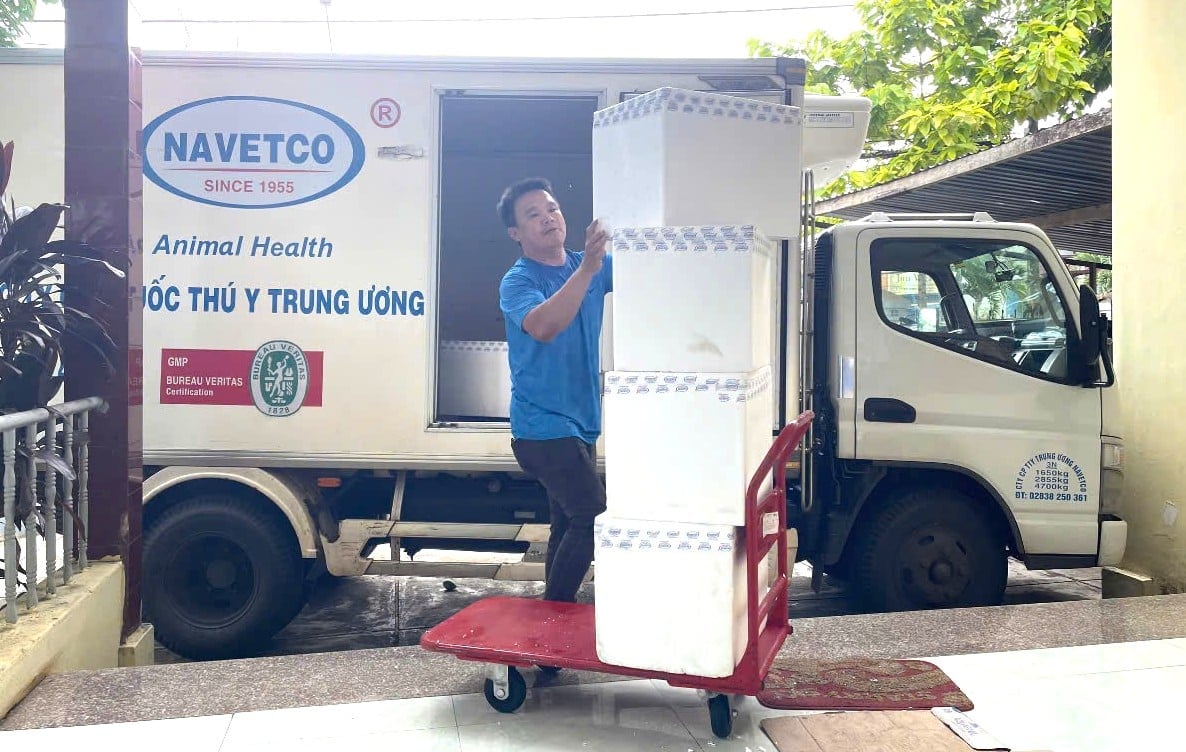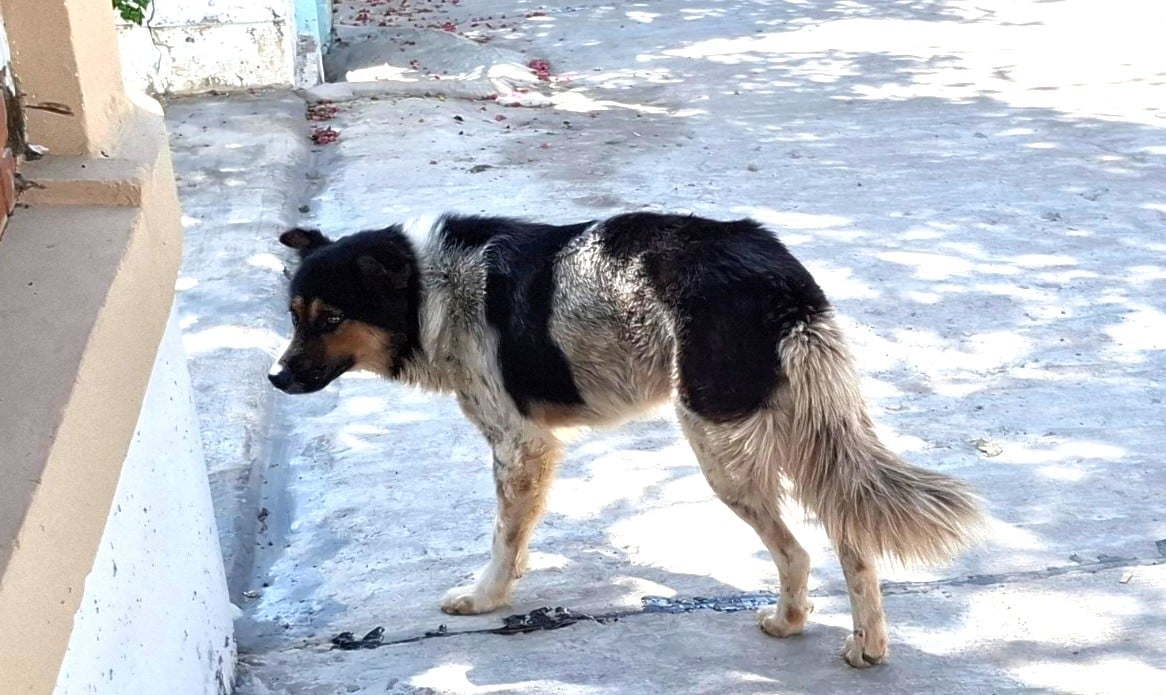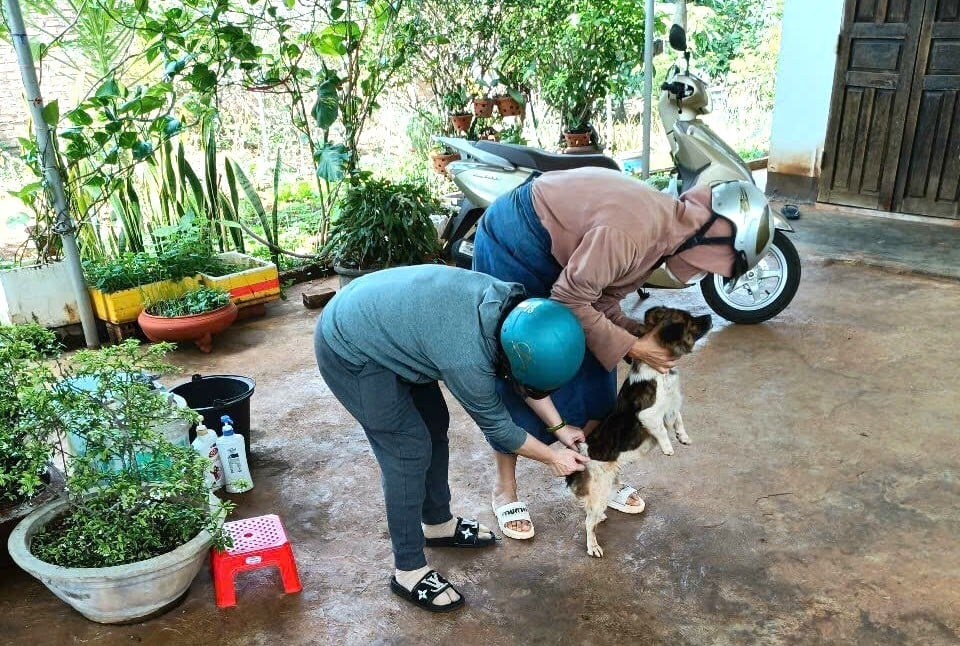December 22, 2025 | 14:06 GMT +7
December 22, 2025 | 14:06 GMT +7
Hotline: 0913.378.918
December 22, 2025 | 14:06 GMT +7
Hotline: 0913.378.918

Rabies vaccines are distributed to localities in Gia Lai province. Photo: DL.
Statistics from the Sub-Department of Livestock Production and Animal Health (Gia Lai Department of Agriculture and Environment) show that this province currently has over 210,000 dogs and cats.
Some groups of ethnic minorities still keep the habit of raising free-range pets, so the risk of being scratched or bitten by dogs and cats is very high. They often take pets to the fields to hunt rats that destroy crops. This thus causes many difficulties in implementing rabies vaccination. Accordingly, the risk of disease in the community is very high, and local authorities are struggling to keep the situation under control.
“People still keep the habit of raising dogs freely, mostly to take them to the fields and return home in the evening. It is much trickier to implement rabies vaccination in areas like these,” said Thai Van Dung, Head of Gia Lai Sub-Department of Livestock Production and Animal Health.
There are times when the veterinary force went all day only to vaccinate a small number of dogs and cats because they could not wait until the pets and their owners returned at nightfall, not to mention that the people’s awareness of rabies vaccination was still low, hence the lack of cooperation with veterinary staff. These are the causes of hidden dangers for rabies outbreaks in the community.

Most people of ethnic minorities still keep the habit of letting dogs and cats roam free. Photo: Dang Lam.
One thing to note is that when there is someone bitten by dogs or cats, people normally do not take the patients to medical facilities for examination and carry out the necessary control steps, so most of them die afterwards. In particular, there are many cases where people beat the dog that has just bitten a person, butcher it and organize a party, leading to a very high risk of exposure to the community.
Since the beginning of the year, Gia Lai province has had ten rabies outbreaks and areas suspected of rabies outbreaks, and recorded four deaths due to rabies in the districts of Chu Pah, Ia Grai, Ia Pa and Chu Puh. It is worth noting that all four cases occurred in ethnic minority areas.
With the determination to vaccinate at least 80% of the province's dog and cat population against rabies by 2025, the Gia Lai People's Committee has allocated funds to purchase 90,224 doses of rabies vaccine and distribute them to localities. The provincial Department of Agriculture and Environment has also given directives on the completion of rabies vaccination on dogs and cats from April 23 to May 23.
Accordingly, localities have actively implemented rabies vaccination for dogs and cats. Many places have achieved high rates, such as Chu Puh with nearly 15,352 doses, Dak Doa with 8,500 doses, Duc Co with 7,600 doses, and Krong Pa with 7,100 doses.

Rabies vaccination is being actively implemented in Gia Lai province. Photo: DL.
Statistics for Pleiku city show that the total number of dogs and cats raised in the area was approximately 12,700 by the end of April 2025. Pleiku City People's Committee has allocated funds to purchase 5,300 doses of rabies vaccine, and the city’s Agricultural Service Center has received 2,150 doses from the Sub-Department of Livestock Production and Animal Health. As of May 10, 4,230 doses have been injected into dogs and cats, reaching a coverage rate of 33.46%.
The Agricultural Service Center of Chu Puh district has deployed rabies vaccination and sprayed disinfectants in Tung Mo B village (Ia Dreng commune) immediately after a recent death due to a dog bite. Nguyen Cong Trinh, Director of the center, said, "The entire district has over 18,000 dogs and cats, most of which are raised freely, so the vaccination process is difficult. However, the center aims to complete rabies vaccination by May 23."
“Identifying the containment and control of rabies is an urgent task, the sub-department therefore coordinates with localities to speed up the progress of rabies vaccination for domestic dogs and cats. We also strengthen inspection and monitoring of the epidemic situation, take the initiative through early detection to promptly handle cases of animals infected with rabies or suspected of being infected with rabies and come up with a solid solution,” said Thai Van Dung, Head of Gia Lai Sub-Department of Livestock Production and Animal Health.
Translated by Samuel Pham
/2025/12/18/4844-4-223614_595.jpg)
(VAN) Building on the 'Large-Scale Rice Field' project, An Giang is developing high-quality rice raw material zones, strengthening consumption linkages, and standardizing processes to meet market requirements.

(VAN) With support from KOICA, livestock sector is developing the regulatory framework for management based on South Korea’s experience.
/2025/12/17/0042-2-075234_14.jpg)
(VAN) In Vinh Long, high-quality, low-emission rice models are being scaled up from cooperatives, helping reduce production costs, increase farmers' incomes, and protect the environment.

Professor Nguyen Duc Ngu, the third generation of leaders since the establishment of Vietnam’s Hydrometeorology sector has witnessed and lived through the long arc of its development.

(VAN) Climate change, saline intrusion, and unsustainable farming practices are depleting agricultural land in the Mekong Delta. Restoring soil health is a key solution for the future of agriculture.

(VAN) Agroforestry coffee not only enhances coffee quality but also helps farmers in Quang Tri enter carbon credit market with high expectations.

(VAN) Towards Net Zero 2050, fertilizer manufacturers are proactively developing bio-based products, reducing emissions, and demonstrating responsibility to the environment.